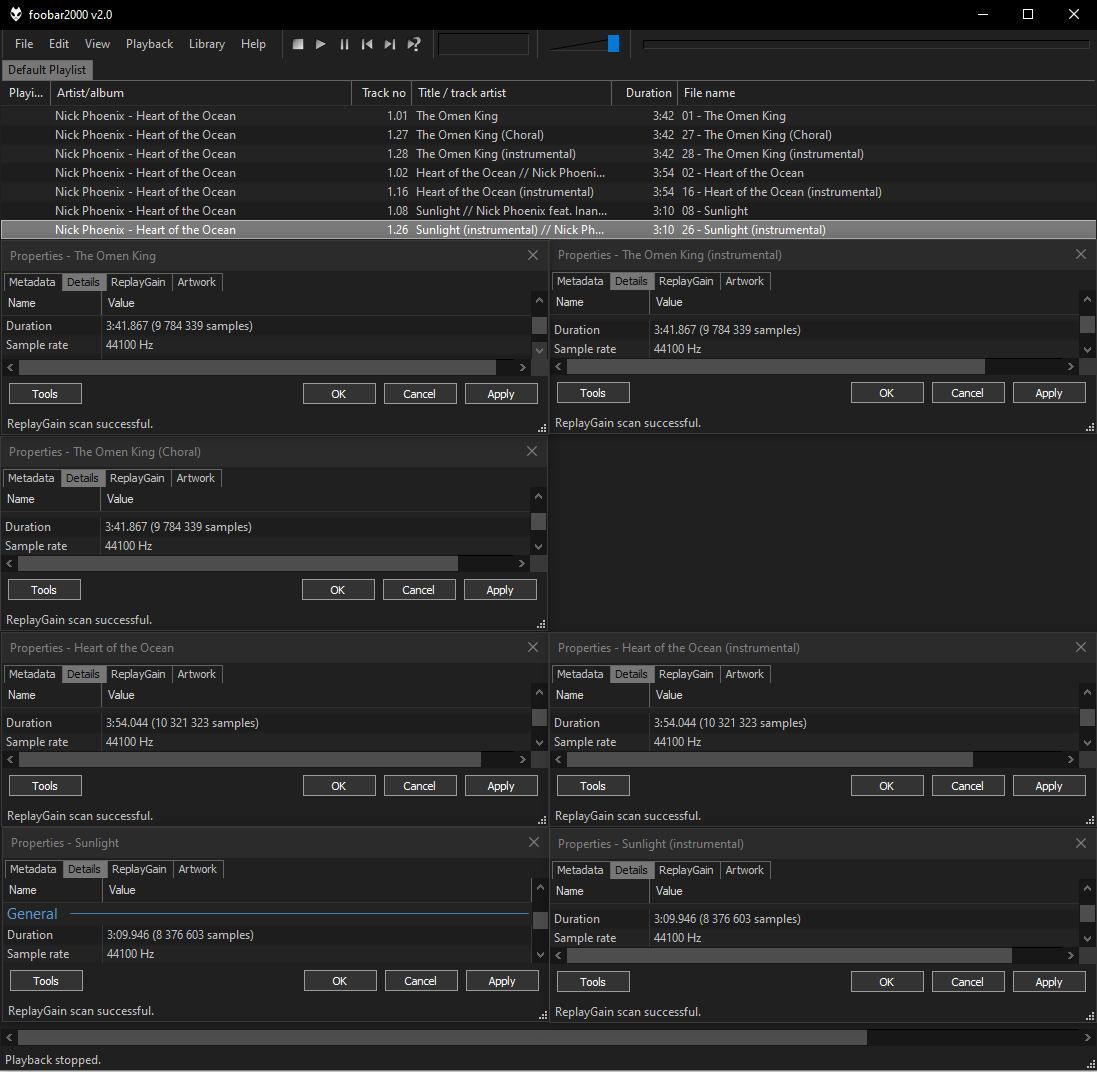This is sort of a follow-up to some of the stuff discussed in my previous thread: What can be done with super polluted AcoustIDs?
I was submitting new fingerprints for an album as most tracks didn’t have one yet since I first created it (Heart of the Ocean) and I noticed most did the usual grouping of “main” and “instrumental” tracks into one AcoustID with different fingerprints, however, some did not and I tried to see if I could find some sort of correlation to help me understand why some do this and some don’t.
TLDR: I have no idea what makes some recordings group together under one AcoustID and some not.
So first off these three recordings are grouped under one AcoustID (3715ab0a-4cbd-4b0f-8ce2-1bf488e2c044):
The Omen King > 95335987
The Omen King (Choral) > 95335982
The Omen King (instrumental) > 95335986
These two look quite distinct to me and the fingerprint strings generated by Picard match in the first ~20.81%:
These two are indeed quite similar and the fingerprint strings generated by Picard match in the first ~21.03%:
These two look decently distinct but not as much as the first two and the fingerprint strings generated by Picard match in the first ~20.89%:
Then we have these two recordings which do not share an AcoustID:
Heart of the Ocean > c23a47e1-1994-414f-8ba6-3324d7ab27e8 > 95351573 (this one has two nearly identical fingerprints, no idea why it even has two, but mine matched the linked one)
Heart of the Ocean (instrumental) > fc0b2b4e-adfd-4e50-b921-5b87c079eebe > 95335978
I would say these have a similar difference as to when I compared fingerprints #95335986 and #95335987, yet those two got combined under one AcoustID while these did not. The fingerprint strings generated by Picard match in the first ~27.61% (much higher than any of “The Omen King” recordings):
Finally, we have these other two recordings which also do not share an AcoustID:
Sunlight > 4f8dbf03-62bc-4cf9-a08f-e39c7240caef > 95335985
Sunlight (instrumental) > 65ad9c41-b3ac-4baa-87c6-59d37282c237 > 95335983
Once again these are quite distinct as well and the fingerprint strings generated by Picard match in the first ~2.73%:
I was hoping to find some sort of correlation to understand why some recordings group under the same AcoustID and some don’t but after all my playing around I found nothing.
I even played around with the Chromaprint “fpcalc” program, which turns out to have 5 algorithms to choose from (#2 is the default, which Picard uses), but even when comparing with different algorithms the strings match percentages only changed by 1% at most when compared to the default algorithm. I did not submit them to the server though as I didn’t trust that I was not going to generate busted data or something.
There you have my possibly interesting findings, which probably mean absolutely nothing to anyone.





